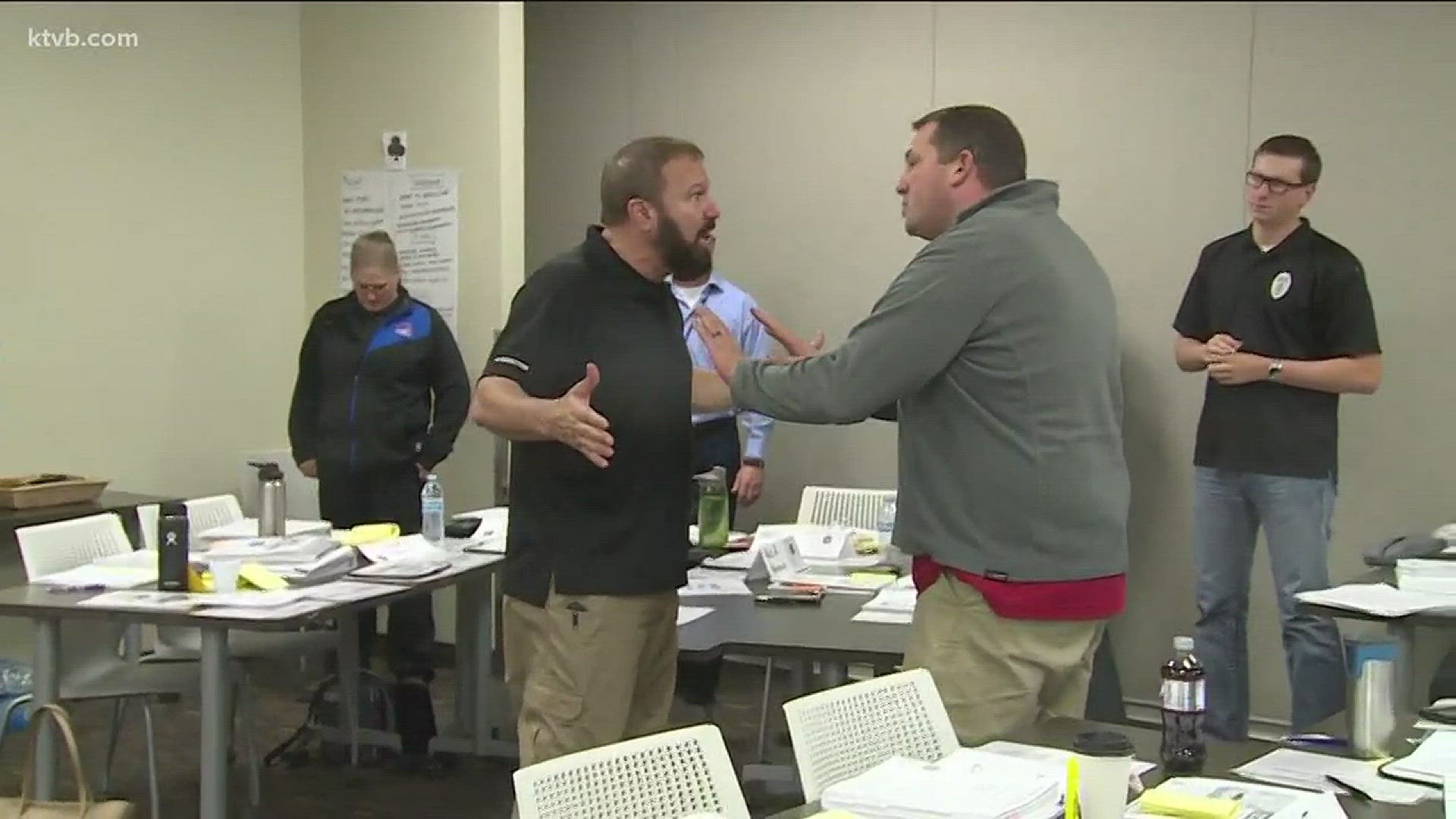In this day and age, it only takes the click of a few buttons for a video to go viral on the internet. While many of these clips are positive and uplifting, others are negative.
Recently, police officers from around the country have found themselves at the forefront of this, usually a seemingly benign incident that escalates quickly.
Wednesday, law enforcement across Idaho, took a course on neutralizing a situation all while maintaining conduct as if they were constantly being filmed or recorded, which they usually are.
Dave Young is one of the co-founders of the training institute Vistelar.
His de-escalation courses focus on using and identifying several basic approaches in a situation where law enforcement responds.
"Positioning, are they allowing you to manage distance and allow you to control positioning during that contact? What is their tone of voice? Is it very loud? Very aggressive? Or is it calm and very disoriented?" all questions Young says to ask yourself.
Also, pay attention to body language.
"I don't want them squaring off at me, or pointing, or making a fist and that goes the same for the contact professional making the contact. Putting your hands out, being more supportive, lowering your voice, getting them to calm down, maybe telling them to time out a little bit, rather than using that parental finger," explains Young. "Think about word choice, I can choose to say 'hey lady can I talk to you for a moment? Or mam, do you have a few minutes I can speak to you?'"
Meridian Police Chief Deputy Tracy Basterachea says a simple greeting can change the entire trajectory of a traffic stop.
"The simple greeting of you know, good morning, I'm Tracy with the Meridian Police Department, that changes the whole setting of that traffic stop," says Basterachea.
Young says using these techniques aren't always as easy as it sounds, especially when an officer has been dealing with crisis after crisis, and coming off a 12-hour shift.
"Professionals on a great day can have a bad moment, and now everything is videotaped, you are either going to be a star on someone's YouTube channel or you are going to be a boob on someone's YouTube channel," says Young. "When you see people on their worst most of the time, you still got to give people your best and that's what this class really focuses on, how to manage that safety without compromising it and that professional show time mindset during contact."

